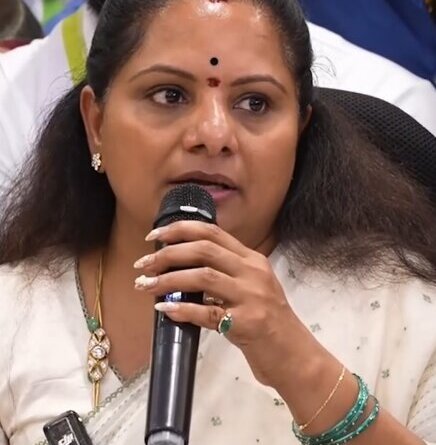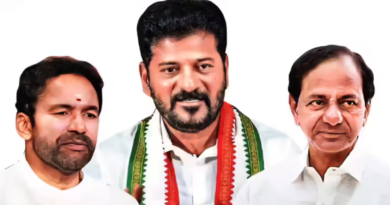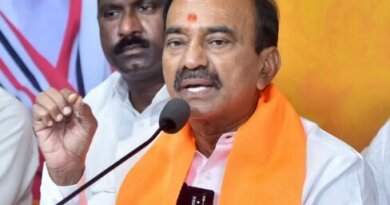Kavitha Sparks Row Over BC Quota Order

A fresh political storm has erupted in Telangana over the state’s controversial GO 9, which grants 42% reservation to Backward Classes (BCs) in local body elections. Telangana Jagruthi president Kalvakuntla Kavitha has accused Chief Minister A. Revanth Reddy’s aides of undermining the order by moving court against it, triggering a heated debate ahead of the October 8 hearing.
The government order, issued on September 26, was hailed as a landmark move to empower BCs across rural and urban governance structures. However, Kavitha claims that the Congress-led government lacks genuine commitment to social justice and is using legal loopholes to dilute the impact of the order.
Speaking to reporters in Hyderabad, Kavitha alleged that the reservation allocations were flawed. “Some wards are reserved for SCs and STs where no such population exists. This is not empowerment—it’s eyewash,” she said.
The issue has also drawn fire from BJP leaders, with Eatala Rajender making controversial remarks about cancelling election results through court interventions. Kavitha hit back, accusing the BJP of creating confusion and undermining democratic processes.
The legal challenge to GO 9 has sparked widespread concern among BC communities, who see the order as a long-overdue recognition of their demographic strength and political marginalization. With BCs constituting over 56% of Telangana’s population, the stakes are high.
Political analysts believe the outcome of the October 8 hearing could reshape local governance in Telangana. If the court upholds the order, it may set a precedent for other states seeking to expand reservation beyond the 50% cap.
Meanwhile, BRS leaders have joined the chorus of criticism, demanding clarity on the government’s stance. Former minister Harish Rao questioned the Congress’s silence on pending DAs and accused the administration of ignoring employee welfare.
The reservation row has become a flashpoint in Telangana’s political landscape, with parties scrambling to position themselves as champions of BC rights. Cultural groups, student unions, and civil society organizations have announced rallies and awareness drives in support of the quota.
Legal experts say the GO 9 order is backed by extensive socio-economic data, including a 2024 survey covering over 35 million individuals. The survey revealed glaring gaps in representation and justified the need for enhanced quotas.
Despite the controversy, the government maintains that the order is constitutionally sound and aims to correct historical injustices. Officials have urged all stakeholders to await the court’s verdict before drawing conclusions.
As the countdown to October 8 begins, Telangana’s political temperature continues to rise. The BC reservation debate is no longer just a legal issue—it’s a battle for identity, equity, and democratic inclusion.
Whether GO 9 survives judicial scrutiny or faces rollback, the conversation it has sparked is likely to shape the state’s electoral future. For now, all eyes are on the High Court and the voices rising from the grassroots.




